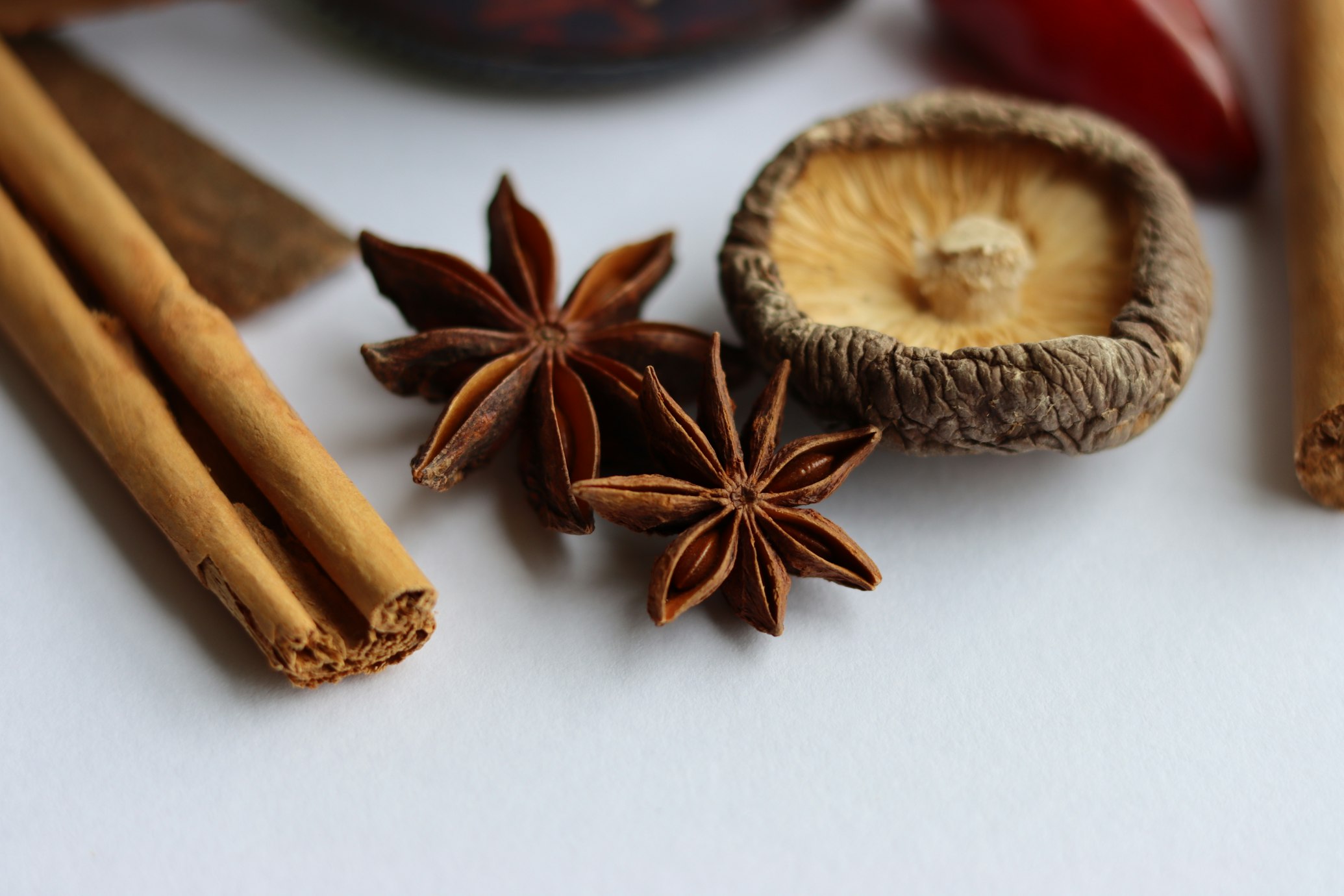Cinnamon is one of the most popular and widely used spices in the world. It has a warm, sweet, and aromatic flavor that enhances many dishes and drinks. But did you know that cinnamon is also a powerful natural remedy that can boost your immune system and fight infections?
In this article, we will explore everything you need to know about cinnamon, from its health benefits and medicinal properties to its history, interesting facts, how to incorporate it into your daily routine, and possible side effects. Let’s get started!
What is Cinnamon and Where Does it Come From?
Cinnamon is a spice from the inner bark of several tree species belonging to the genus Cinnamomum. There are two main types of cinnamon: Ceylon cinnamon (also known as true cinnamon) and Cassia cinnamon (also known as Chinese cinnamon). Ceylon cinnamon is native to Sri Lanka and has a delicate and sweet flavor. Cassia cinnamon is native to China and has a stronger and more intense flavor. Both types of cinnamon have similar health benefits, but Cassia cinnamon contains more coumarin, a substance that can cause liver damage if consumed in large amounts.
It has been used for thousands of years as a culinary and medicinal spice. Highly valued by ancient civilizations such as the Egyptians, Greeks, Romans, and Chinese. It was also one of the main commodities traded along the Silk Road, a network of routes that connected Asia, Europe, and Africa. It was so precious that it was often used as a gift for royalty and a symbol of wealth and status.
What are the Health Benefits and Medicinal Properties of Cinnamon?
It has many health benefits and medicinal properties according to research, thanks to its rich content of antioxidants, and anti-inflammatory, and anti-microbial, compounds. Some of the main benefits of cinnamon are:
Can boost your immune system and fight infections
Studies have shown that cinnamon has potent anti-microbial activity that can inhibit the growth of bacteria, fungi, and viruses. It can also stimulate the production of immune cells and enhance their function. Cinnamon can help prevent common infections such as colds, flu, sore throat, bronchitis, and urinary tract infections.
Can lower blood sugar and improve insulin sensitivity
Cinnamon can help regulate your blood sugar levels and improve your insulin sensitivity, which are key factors for preventing and managing diabetes. Cinnamon can reduce the absorption of glucose from the intestines, increase the uptake of glucose by the cells, and stimulate the secretion of insulin by the pancreas.
Can reduce cholesterol and triglyceride levels and protect your heart health
It can help lower your cholesterol and triglyceride levels, which are risk factors for cardiovascular diseases such as heart attack and stroke. Can also prevent the oxidation of LDL (bad) cholesterol, which can cause plaque buildup in your arteries. Also improves your blood circulation and prevent blood clots.
It can improve your brain function and memory
Can help boost your brain function and memory by increasing the levels of neurotransmitters such as serotonin and dopamine, which are responsible for mood, learning, and cognition. Also protects your brain cells from oxidative stress and inflammation.
It can help you lose weight and burn fat
May help you lose weight and burn fat by increasing your metabolism and thermogenesis, which convert food into energy and heat. It can also suppress your appetite and reduce your cravings for sugary and fatty foods. This can also modulate the hormones and enzymes involved in fat storage and breakdown.
How to Incorporate Cinnamon into Your Daily Routine?

There are many ways to incorporate it into your daily routine and enjoy its benefits. Here are some of the easiest and most delicious ways:
- Add it to your coffee, tea, or hot chocolate: This is a simple and cozy way to spice up your beverages and warm your body up. You can add a pinch of cinnamon powder or a stick of cinnamon to your cup and stir well. You can also use cinnamon-flavored coffee or tea bags for convenience.
- Sprinkle it on your oatmeal, yogurt, or smoothies: This is a healthy and tasty way to add more flavor and nutrition to your breakfast or snacks. You can sprinkle some cinnamon powder on your oatmeal, yogurt, or smoothies, or blend some cinnamon sticks with your fruits and milk.
- Bake it into your bread, muffins, or cookies: This is a fun and satisfying way to enjoy cinnamon as a dessert or a treat. You can add some cinnamon powder or sticks to your dough or batter, or use cinnamon as a topping or a filling for your baked goods.
- Cook it with your rice, soup, or curry: This is a savory and exotic way to use cinnamon as a spice and enhance your dishes. You can add some cinnamon powder or sticks to your rice, soup, or curry, or use cinnamon as a part of your spice mix or marinade.
- Take cinnamon as a supplement or a capsule: This is a convenient and effective way to get a concentrated dose of cinnamon and its benefits. You can take cinnamon as a supplement or a capsule, either alone or in combination with other herbs or nutrients. You can find cinnamon supplements or capsules in our online shop.
What are the Possible Side Effects and Precautions of Cinnamon?
It is generally safe and well-tolerated by most people, but it can also have some possible side effects and precautions, especially if consumed in large amounts or for a long time. Some of the possible side effects and precautions of cinnamon are:
- It can cause allergic reactions: Some people may be allergic or sensitive to it or its components, and experience symptoms such as rash, itching, swelling, or difficulty breathing. If you have a history of allergies or asthma, you should consult your doctor before using cinnamon.
- It can interact with some medications: It can interact with some medications and affect their effectiveness or cause adverse effects. Some of the medications that can interact with cinnamon are blood thinners, diabetes drugs, antibiotics, antifungals, and antidepressants. If you take any medications, consult your doctor before using it.
- It can cause liver damage: Cinnamon, especially Cassia cinnamon, contains coumarin, which can cause liver damage if consumed in large amounts or for a long time. If you have a history of liver problems or diseases, you should avoid or limit your intake of it.
- It can lower your blood sugar too much: it can lower your blood sugar levels and improve your insulin sensitivity, which is beneficial for diabetes, but it can also cause hypoglycemia, a condition where your blood sugar drops too low and causes symptoms such as dizziness, weakness, confusion, or fainting. If you have diabetes or hypoglycemia, you should monitor your blood sugar levels and adjust your medication dosage accordingly.
- It can cause bleeding: It can prevent blood clots and improve your blood circulation, which is good for your heart health, but it can also increase your risk of bleeding, especially if you have a bleeding disorder or are undergoing surgery. If you have a bleeding disorder or are planning to have surgery, you should stop using it at least two weeks before the procedure.
Conclusion
Cinnamon is a wonderful spice that can boost your immune system and fight infections, as well as provide many other health benefits and medicinal properties. You can easily incorporate it into your daily routine and enjoy its flavor and aroma. However, you should also be aware of the possible side effects and precautions of cinnamon, and use it with moderation and caution. Always consult your doctor before using any natural remedies, and do your research to find the best quality and type of cinnamon for your needs.
Sources
10 Evidence-Based Health Benefits of Cinnamon
Cinnamon: Health Benefits and Side Effects – WebMD



